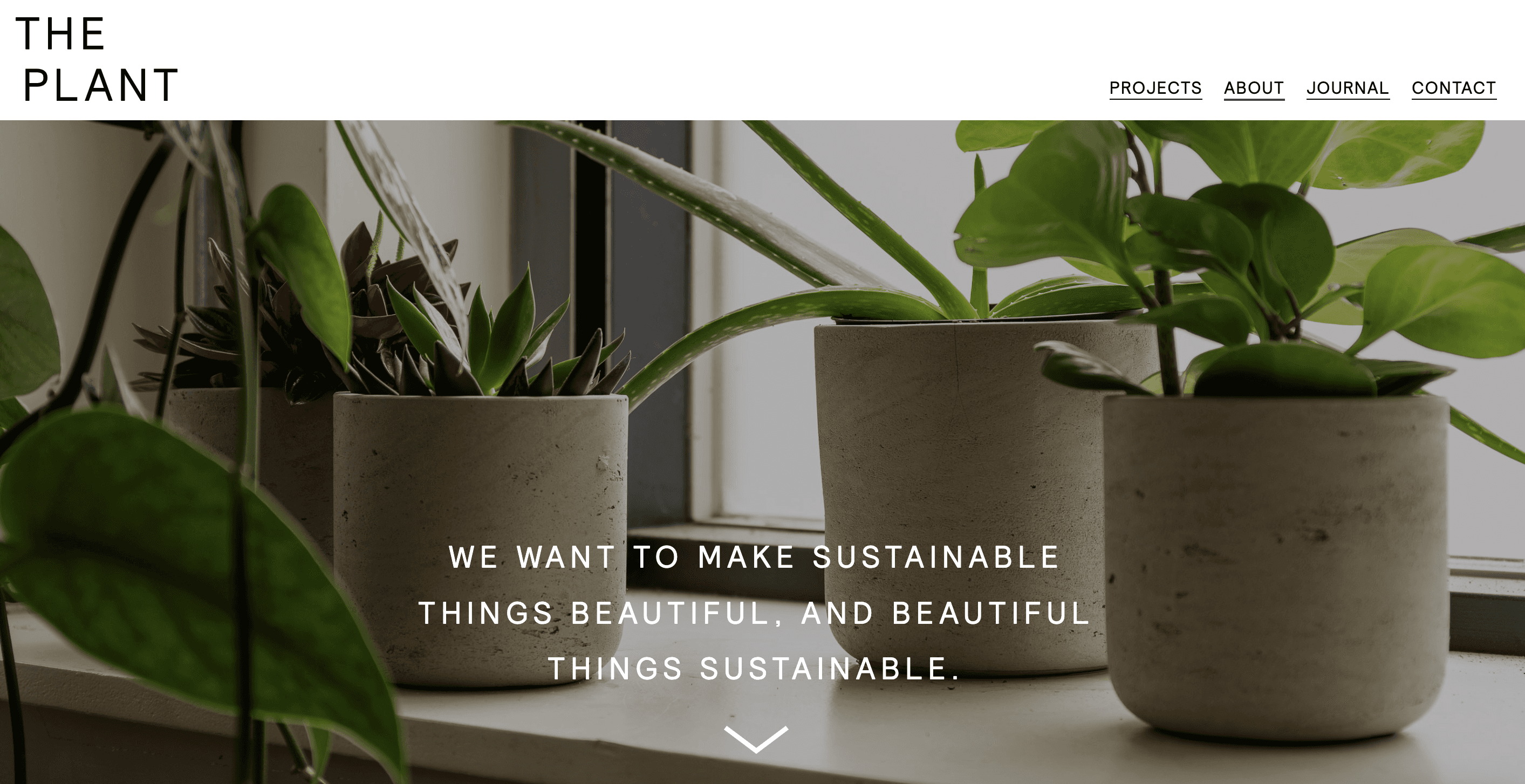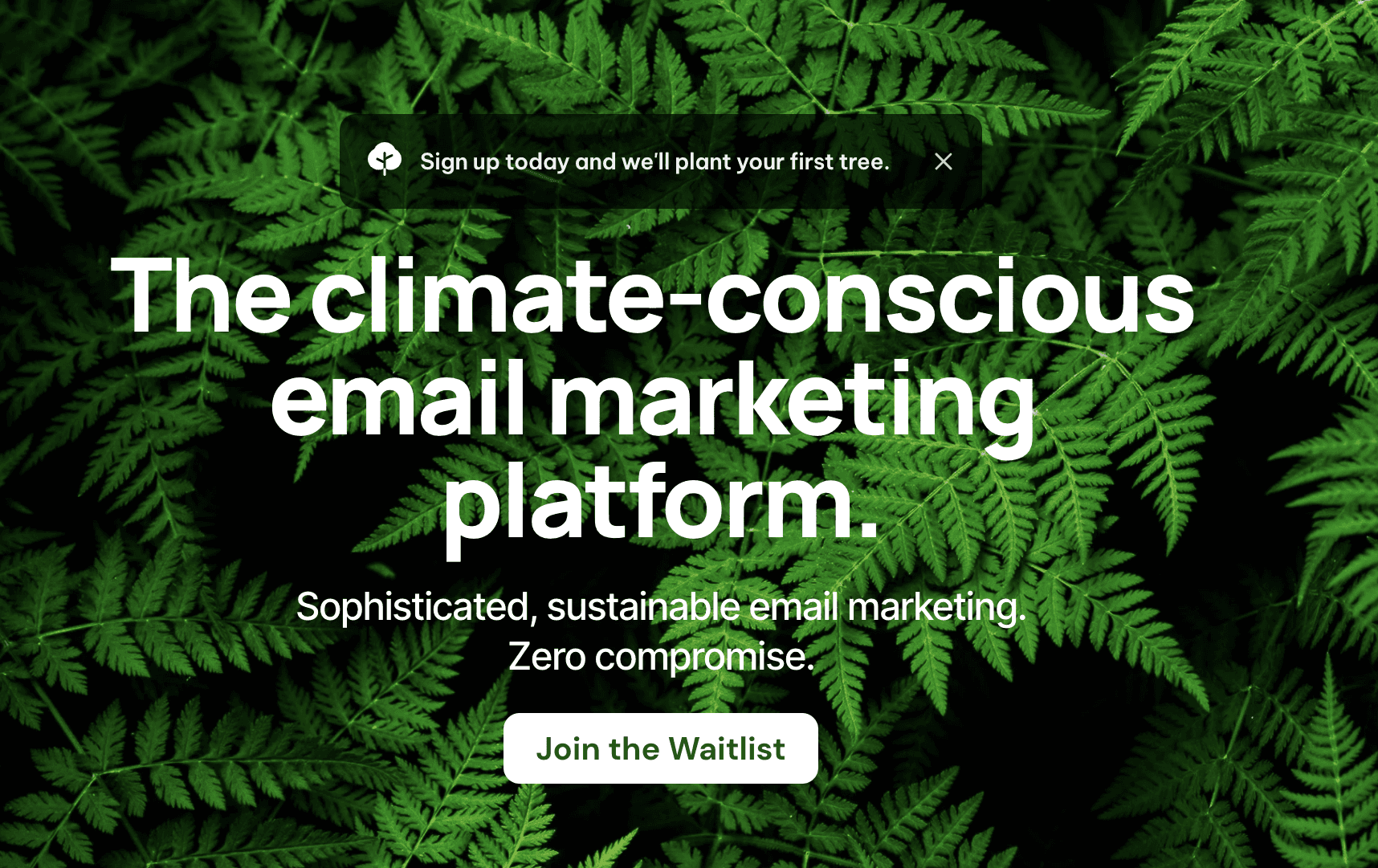How do you infuse sustainable ethics into your company? What does that actually look like in real terms, especially within the creative industry?
To find out, Our CEO James sat down with Matt Utber, Founder and Creative Director of The Plant, a London-based branding agency which has a strong focus on sustainability.
Predominantly working within the arts and food sectors, the Plant has worked with some of the UK’s most memorable and successful brands. This includes the likes of Eat, Jamie’s Italian, Curzon Cinemas MasterChef and The Four Seasons.
You can scroll down to listen to the full episode for free, which is episode 5 in our current podcast series. In the meantime, here is a recap of the conversation between James and Matt.
The Plant’s Journey Towards Sustainability

Matt Utber: “The Plant has been running for about just over 15 years now. Over the last five years, we’ve tried to move towards building a business model for us that’s really firmly directed towards a sustainable future for the planet.
That has predominantly involved things like becoming a B Corporation, restructuring our process to include sustainability and looking for clients that have a similar attitude and mindset to us, and just trying to roll out as much impact and as much change as we possibly can.”
James Gill: “I feel like there’s a lot to dig into here. So maybe the starting place would be, what got you on this journey? Did you just wake up one day and think this seems like the right thing to do? Or was there any sort of moment that made you think, God, we’ve gotta really pay attention to this? Or was it an opportunistic thing?”
Matt Utber: “Yeah, it’s difficult to pinpoint a moment. I’ve always been, you know, someone that’s understood and tried to believe the science around the climate crisis that we’re in at the moment. You know, I’m probably showing my age here a little bit, but as a very young man, I went to the Rio Summit in 1991; the Eco Summit in Rio.
It was kind of an accident. We were just myself and my girlfriend at the time touring through South America and we just happened to be in Rio. It sort of brought home the reality of the challenges that we face. That’s, you know, that’s over 30 years ago. I was very, very young.
I think it might have been the first COP summit. There was this whole series of governments, leaders and environmental activists gathered to plot a direction for the future.
I guess my own journey is kind of related to that in the sense that there’s been fits and starts. There’s been an underlying passion to make a change. The reality of trying to run a business and trying to pay people’s wages and that sort of thing, which kind of occasionally supersedes that. So realistically, it’s been a journey of ups and downs. Probably four years ago at The Plant we really made a beginning to make a really significant effort to really change the business and its model.
Since then, we’ve been working together to reformat our business model and process to try to make sure that sustainability’s really embedded in everything that we do.”
“[Sustainability] Is Like Any Form Of Therapy – You Need Someone Externally To Take A View On Where You Are And Where You Need To Go.”
James Gill: “There’s a lot to unpack here. So, I mean, for a start, you mentioned working with a consultant to help with this. How did that come about? What was the goal there? Was it ‘give us a green logo’ or was it, how do we truly change everything?”
Matt Utber: “It’s, it’s a tricky one. There’s a parallel to what we do. I think because we’re ultimately a consultancy as well. I think the way that we often express what we do to our clients is, what we do is a form of business therapy.
So what we do is we sit people down. We give them a cup of tea. We talk about their past and the challenges they’ve faced and about their aims and their goals, and then hopefully push them out the door at the end of the process optimistically directed into the future.
I think it’s like any form of therapy. You can’t do that for yourself. You need someone externally to take a view on where you are and where you need to go. I think that was how we felt about how we were approaching our sustainability and environmental credibility.
So, I just felt that we needed to sort of reach out to someone to get a view on what we were doing and have them help us and guide us through that. I’d certainly recommend that to anyone you know, who’s considering either becoming a B Corp or changing their business model to hire someone or at least find someone who can give you some advice.”
Having A Wider Positive Impact
Matt Utber: “We mentor a small charity in South London called Blackfriars Settlement. They have a mental health and wellbeing unit, and within that, they have a small graphic design studio that’s all staffed by people who’ve experienced mental health problems.
So for about the last four or five years, we’ve helped to mentor and support them. Their director comes and sits in our studio one day a week. So we support them through all their projects. We fundraise for them as well. If anyone’s listening, we have a crowd funder running at the moment and it’s called Create Space.
We’re trying to raise £50,000 for them to employ a manager for the business so that they can grow and support more people that are experiencing mental health issues. Because the statistics around mental health within the creative industry are actually pretty telling.”
James Gill: “Really?”
Matt Utber: “Yeah. A lot of people that work within the creative industry experience real issues with their mental health; you know, suicidal thoughts and all sorts of things. So we try to support them as well.
I think that analogy between businesses and charities and having this sort of dividing line between them is really important. Because most businesses should be a fusion of trying to make a profit. But also trying to help support your community and tackle the challenges we face.”
James Gill: “Yeah! Hopefully more businesses will think more like that and more charities can think more about how they can bring some business concepts into their world too.”
“Be Honest With Yourself And The People Who Work For You”
James Gill: “Often on these episodes we try and see if anyone’s got any advice for others. I mean, you’ve already given a lot of advice, but are there any specific nuggets of wisdom to leave?”
Matt Utber: “I’m not sure if I have any wisdom advice. I just think be honest with yourself and what you’re trying to achieve. I think that’s a really important thing. I think a lot of the time we try and kid ourselves that we’re trying to do something or achieve something for ourselves when in reality, you know, we’re not.
But be honest with yourself. Be honest with your clients and the people that work for you. I think this kind of contemporary idea of transparency is really important. Let the light shine through.”
James Gill: “Absolutely. I mean, it’s incredibly profound. Thank you for that, I couldn’t agree more though. I think it’s too hard to not be transparent these days.”
Where To Find The EcoSend Podcast
Our discussion with Matt was truly thought provoking and is well worth a listen. It’s not often we all get to see how companies are adapting their business model to help not only the planet but those around them, so we thank Matt and The Plant team for being kind enough to share their wisdom with us. We also hope you’ll check our Create Space, which we’ve linked to above.
You can listen to episode 5 of the EcoSend podcast, along with episodes 1-4 on the above links for free.
We hope you’ll tune in, and let us know what you think! You can also tag us over on Twitter on our new EcoSend account.
EcoSend By GoSquared – The Sustainable Email Marketing Platform

Do any email marketing? You too could also do some good for the planet, by reducing the carbon emissions associated with sending emails.
EcoSend by GoSquared is just the ticket. We’ll plant trees on behalf of your business for using us, and our systems are powered by renewable energy. Our tools also help you to sell more intelligent emails, so you can have maximum impact on your business goals with less impact on the climate.
Our plans start at $0 per month, with paid plans starting at an incredible $49 per month. Check out our pricing and make the switch to EcoSend today.
Let us know any questions about EcoSend, including how it can help your company achieve its goals while reducing the impact on the environment. Reach out to our team to chat further with us.




